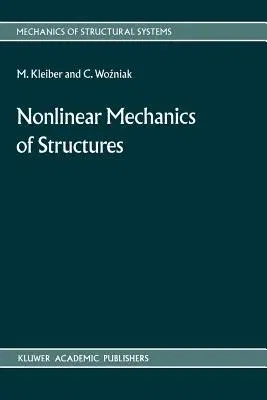The aim of this book is to provide a unified presentation of modern
mechanics of structures in a form which is suitable for graduate
students as well as for engineers and scientists working in the field of
applied mechanics. Traditionally, students at technical universities
have been taught subjects such as continuum mechanics, elasticity,
plates and shells, frames or finite element techniques in an entirely
separate manner. The authors' teaching experience clearly suggests that
this situation frequently tends to create in students' minds an
incomplete and inconsistent picture of the contemporary structural
mechanics. Thus, it is very common that the fundamental laws of physics
appear to students hardly related to simplified equations of different
"technical" theories of structures, numerical solution techniques are
studied independently of the essence of mechanical models they describe,
and so on. The book is intended to combine in a reasonably connected and
unified manner all these problems starting with the very fundamental
postulates of nonlinear continuum mechanics via different structural
models of "engineer- ing" accuracy to numerical solution methods which
can effectively be used for solving boundary-value problems of
technological importance. The authors have tried to restrict the
mathematical background required to that which is normally familiar to a
mathematically minded engineering graduate.


